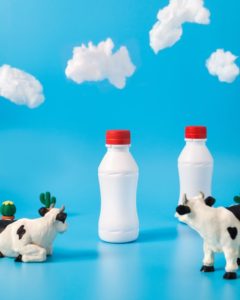Menopause Diet Tips; What to Avoid, What to Eat
Menopause is the term used to describe when women experience a halt in experiencing periods. This usually happens naturally as they age, from the age range of 45 to 55 years old. There is no other way to put it but it simply isn’t a great experience. However, there are certain foods to avoid during this stage of your life, as well as certain foods to change. Both will help you during menopause so that you can tackle this well equipped and feel as good as possible.
As losing weight becomes increasingly difficult at this time we need to start avoiding those foods that we cannot burn off. As they say, prevention is better than cure. Some examples of what foods to avoid during menopause will be discussed.
Foods to avoid
Research has proven that high blood sugar, results in an increase in hot flashes in menopausal women. Processed foods and added sugars are known to raise your blood sugar at a fast pace. The processed element of this is very profound and has a direct impact. Processed foods and added sugars are also known to have the same impact, they cause a spike in insulin release. Releasing too much insulin is not great for your body. The more processed the type of food is, the more of an impact it has on your blood sugar levels. Examples of processed foods are breakfast cereals, cheese, microwave meals or ready-made meals, cakes and biscuits, milk or soft drinks, and more.
Spicy foods are something to avoid. There is limited research on this. However, when a study was carried out, there was an association between menopausal women experiencing hot flashes and the intake of spicy food. Spice tolerance is variable to the individual, so take this with a pinch of salt. Something we would recommend is going for a period of time without consuming spicy food, and then a period of time consuming spicy food. Examine your own symptoms and see if they align with hot flushes or symptoms of such and then make the lifestyle changes that are in your favour.
Foods to eat

There are two specific types of foods that most women lack in their diet. They can have a negative impact on your body during menopause. It is important to increase your intake so that your body can function at its best, and will keep you in optimum condition during the time of menopause. They are both calcium and iron. In terms of calcium, this can be done by having two to four servings of foods rich in calcium. It is found in dairy products, such as fish that have bones (sardines and salmon), legumes, broccoli, and more. 1,200 mg a day is the recommended intake. In terms of iron, have 3 servings of food rich in iron a day. Iron is found in grains, nuts, eggs, fish, red meat, poultry, and more. 8mg a day is the recommended intake.
Vitamin D is what your body needs in order to absorb calcium. What good is eating more calcium if your body isn’t making the most of it? Exactly! Make sure to either eat foods rich in Vitamin D, such as oily fish, liver, egg yolks, red meat, and more. You can opt for the easier route though and take Vitamin D supplements instead.
Whole grains have high nutrient content, including vitamin B and fiber. In a study that was carried out with 11,000 postmenopausal women, they found out that consuming 4.7g of whole-grain fiber with 2,000 calories per day led to a reduction in the risk of death by 17% when compared to a 1.3g intake. Examples of whole-grain foods include brown rice, quinoa, and barley.
Let us help you!
Check out our shop page to find the perfect supplements for you to help you with menopausal needs or have a look at our lifestyle pages where you can find guidelines, advice, and specially tailored products.


